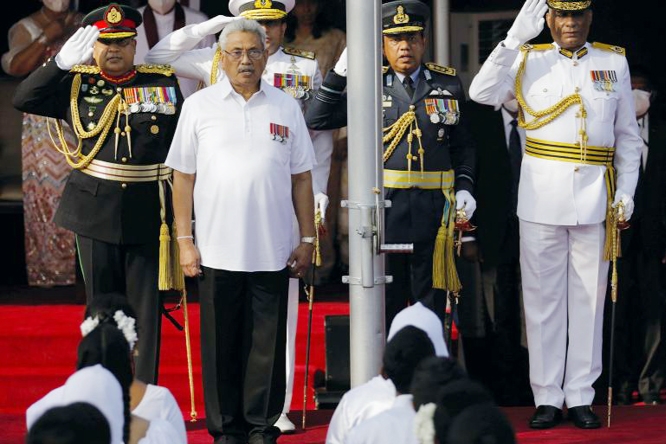
AP :
Sri Lanka celebrated its Independence Day on Friday with an appeal by the president to the country’s expatriates to send money home as it struggles with the worst economic crisis in decades mainly due to depleted foreign reserves.
Sri Lankans are facing shortages of milk powder, cooking gas, kerosene and other essentials. Cash shortages have hindered imports of raw materials for manufacturing and worsened inflation, which surged to 12.1 percent in December.
The coronavirus pandemic has dealt a heavy blow to an economy that depends heavily on tourism and trade, with the government estimating a loss of $14bn over the last two years. The economy is estimated to have contracted by 1.5 percent in July-September 2021, according to the central bank.
President Gotabhaya Rajapaksa said Sri Lankans abroad who sent foreign currency back home are a major resource.
“I invite all expatriate Sri Lankans to invest in their homeland,” he said in an address during a ceremony marking Independence Day in the capital, Colombo. A colourful military parade followed his speech.
Data shows that overseas remittances – the nation’s main foreign exchange earner – have fallen by nearly 60 percent to $812m in December from a year earlier. For the whole year, remittances declined 22 percent to $5.4bn. The drop came after the government ordered the mandatory conversion of foreign currency and exchange rate controls.
Because of the currency shortage, importers are unable to clear their cargo and manufacturers are unable to buy raw materials from overseas.
Sri Lanka has borrowed heavily and faces repayments on $15bn in international sovereign bonds.
Officials have said the government is gradually building back reserves to ensure it can honour its debts.
“None of the crises we experience today are long-term problems. We can find solutions to them with an optimistic approach,” Rajapaksa said. “We have faced critical problems in the recent history as well and found solutions.”

